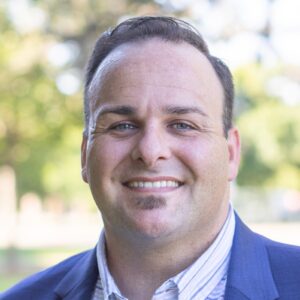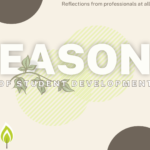![]() This content is brought to you by the Association for Christians in Student Development (ACSD), a volunteer membership organization committed to equipping and challenging faithful professionals to infuse their Christian faith into student development practice and scholarship. Thoughtful content such as this is made possible by volunteer contributions and the financial support of membership dues. Interested in becoming a member for more awesome content just like this? Join today by clicking here!
This content is brought to you by the Association for Christians in Student Development (ACSD), a volunteer membership organization committed to equipping and challenging faithful professionals to infuse their Christian faith into student development practice and scholarship. Thoughtful content such as this is made possible by volunteer contributions and the financial support of membership dues. Interested in becoming a member for more awesome content just like this? Join today by clicking here!
A recent anonymous post in a professional group sparked an important conversation about supervising team members who have different career trajectories, specifically someone not aspiring to senior leadership roles. The post described a newly appointed Associate Director navigating the dynamics of supervising a program coordinator with 15 years of institutional experience. While the coordinator has strong relationships with students and prefers their current role, the Associate Director faced challenges in balancing boundaries, accountability, and professional development.
As a Director, I’ve had the privilege of supervising a mix of new professionals and seasoned professionals. In an area like Residence Life, it’s common to assume — particularly with Residence Directors — most would be in the early stages of their career, building experience as they aspire to senior leadership roles. But what if they aren’t? What if someone’s legacy and life calling is to serve as a Residence Director for 20 or 30 years?
There’s beauty and depth in professionals who feel called to stay rooted in a role where they can directly impact students’ lives day after day. In the higher education landscape, where career trajectories are often viewed as ladders to climb, we sometimes fail to see the richness in those who choose to remain steadfast in their positions. As Parker Palmer writes in Let Your Life Speak, “Vocation does not come from willfulness. It comes from listening.” Some professionals may feel that staying in their role is their unique way of listening and honoring their calling.
Reframing Value in Seasoned Professionals
Instead of focusing on career progression, we may want to view seasoned professionals as invaluable assets to our teams and institutions. Their deep institutional knowledge, consistent student connections, and unwavering dedication create a legacy that impacts generations of students. Their work reminds us of Philippians 2:3–4: “Do nothing out of selfish ambition or vain conceit. Rather, in humility value others above yourselves, not looking to your own interests but each of you to the interests of the others.”
As supervisors, our role is not to force upward movement but to create a supportive environment that fosters their unique gifts. This involves:
- Clarifying Expectations: Are there actual performance issues, or is this simply a difference in work styles? Supervisors should approach these discussions with open-ended questions like, “What brings you the most joy in your role?” or “How can we help you feel more supported in your work?”
- Encouraging Stewardship: Encourage all team members to view their role as a sacred trust and stewardship. Colossians 3:23–24 reminds us: “Whatever you do, work at it with all your heart, as working for the Lord, not for human masters. since you know that you will receive an inheritance from the Lord as a reward. It is the Lord Christ you are serving.” Help them set boundaries with students and model how stewardship involves caring for their own well-being as well as their work.
- Celebrating Their Legacy: Acknowledge that long-serving staff create a unique legacy. Their relationships and history with the institution can be leveraged to build bridges and mentor younger staff members. Is there a way to work with alumni or advancement to create an endowed scholarship in a long-serving staff member’s name, as a way to honor their years of service?
- Shifting Mindsets About Leadership: As a leader, your interactions with students will naturally look different than theirs. It’s not about competition but complementing each other’s strengths. Seasoned professionals can often act as the “eyes and ears” on the ground, giving you a pulse on the student experience.
- Offering Professional Development Opportunities: Goal setting doesn’t always have to focus on “the next step.” Instead, explore ways they can enhance their skills in their current role. For example, they might pursue certifications, attend conferences, or develop niche expertise that benefits the department.
A Biblical Perspective on Calling
In Ephesians 4:11–12, Paul writes, “So Christ himself gave the apostles, the prophets, the evangelists, the pastors, and teachers, to equip his people for works of service, so that the body of Christ may be built up.” This verse reminds us that everyone has a role to play in building up the community. Not everyone is called to be a director, dean, or vice president. Some are called to be mentors, guides, and consistent, steady presences in the lives of students.
In higher education, we have the opportunity to cultivate environments where people thrive in their unique callings — whether they’re climbing the ladder or standing firm in their current roles.







